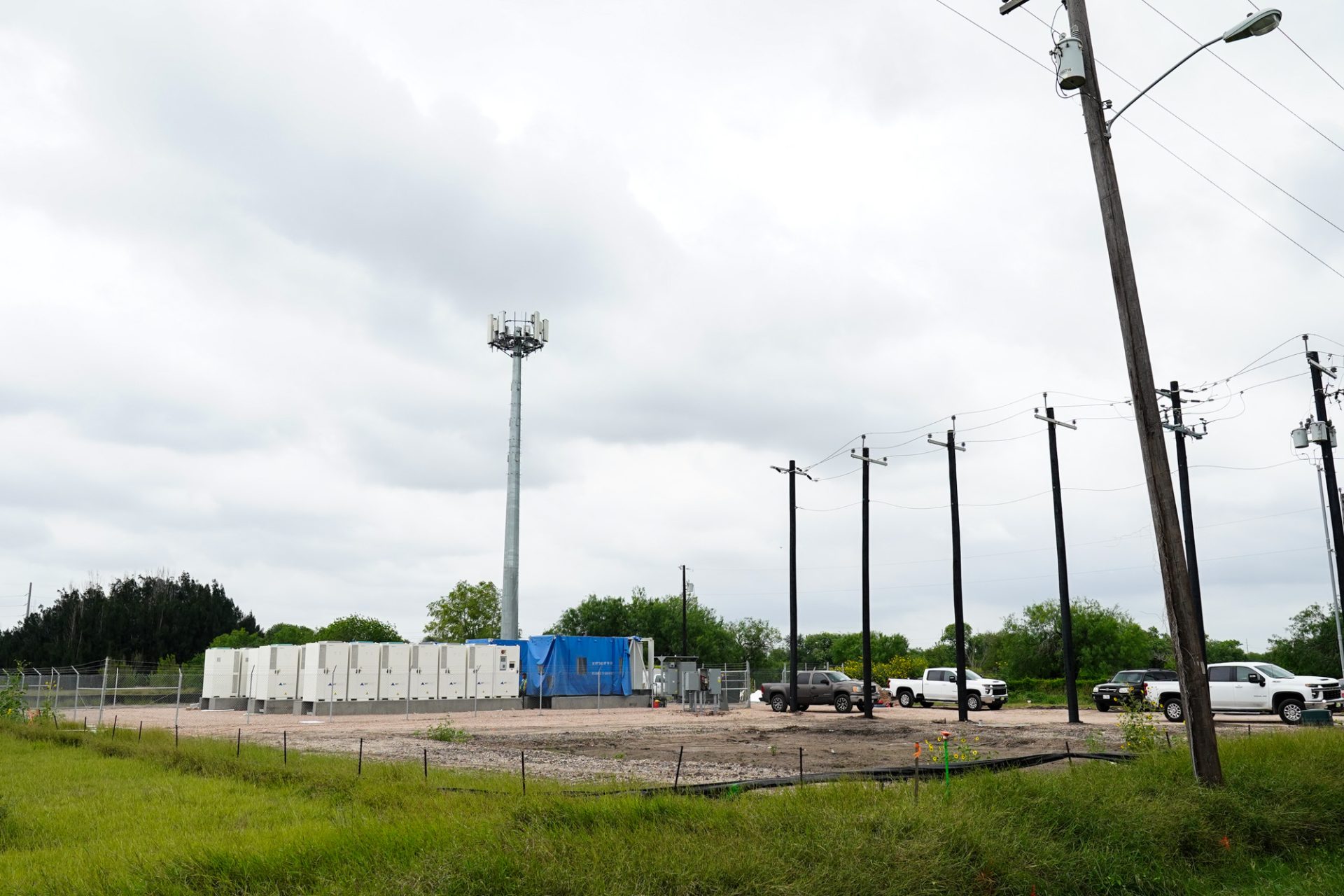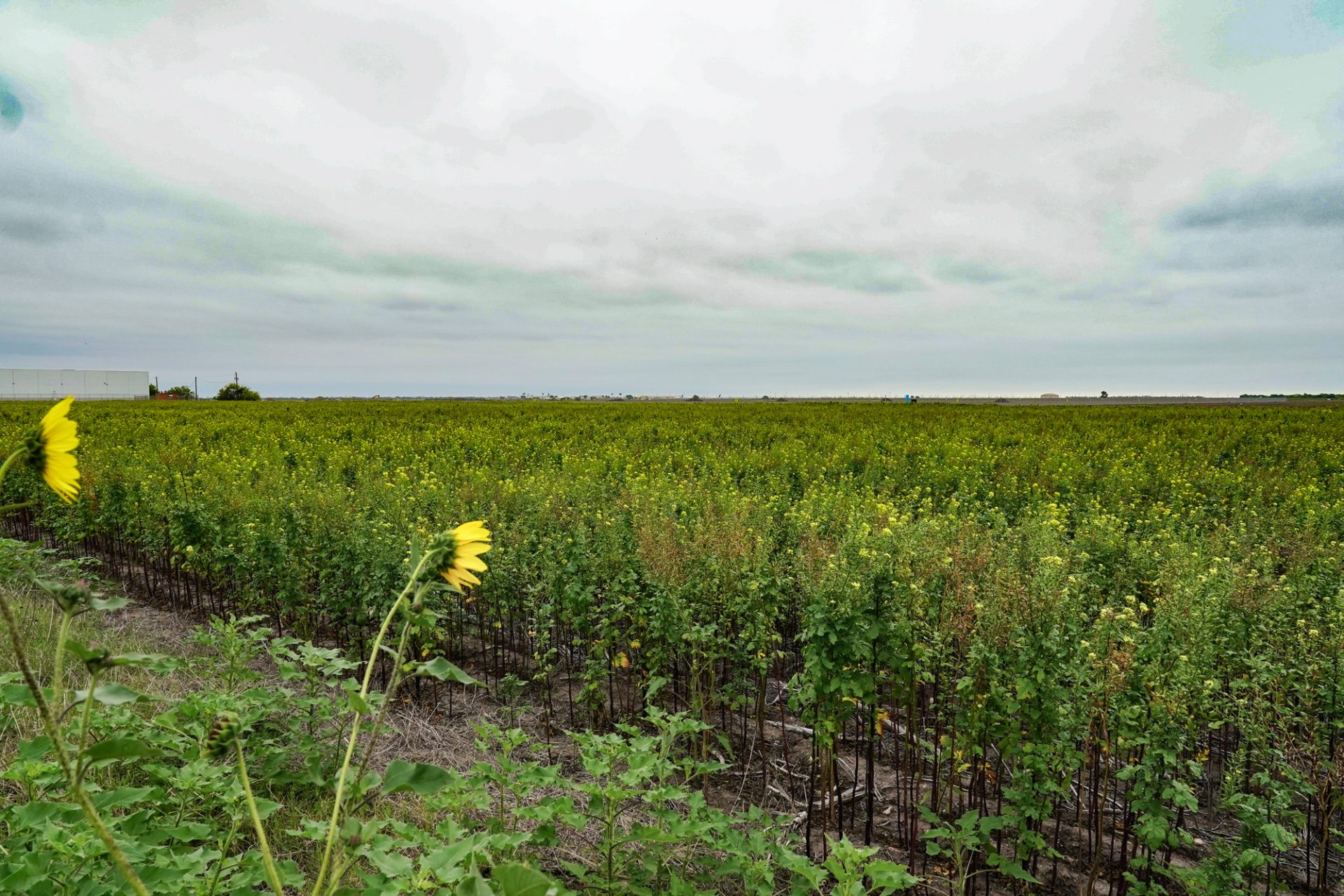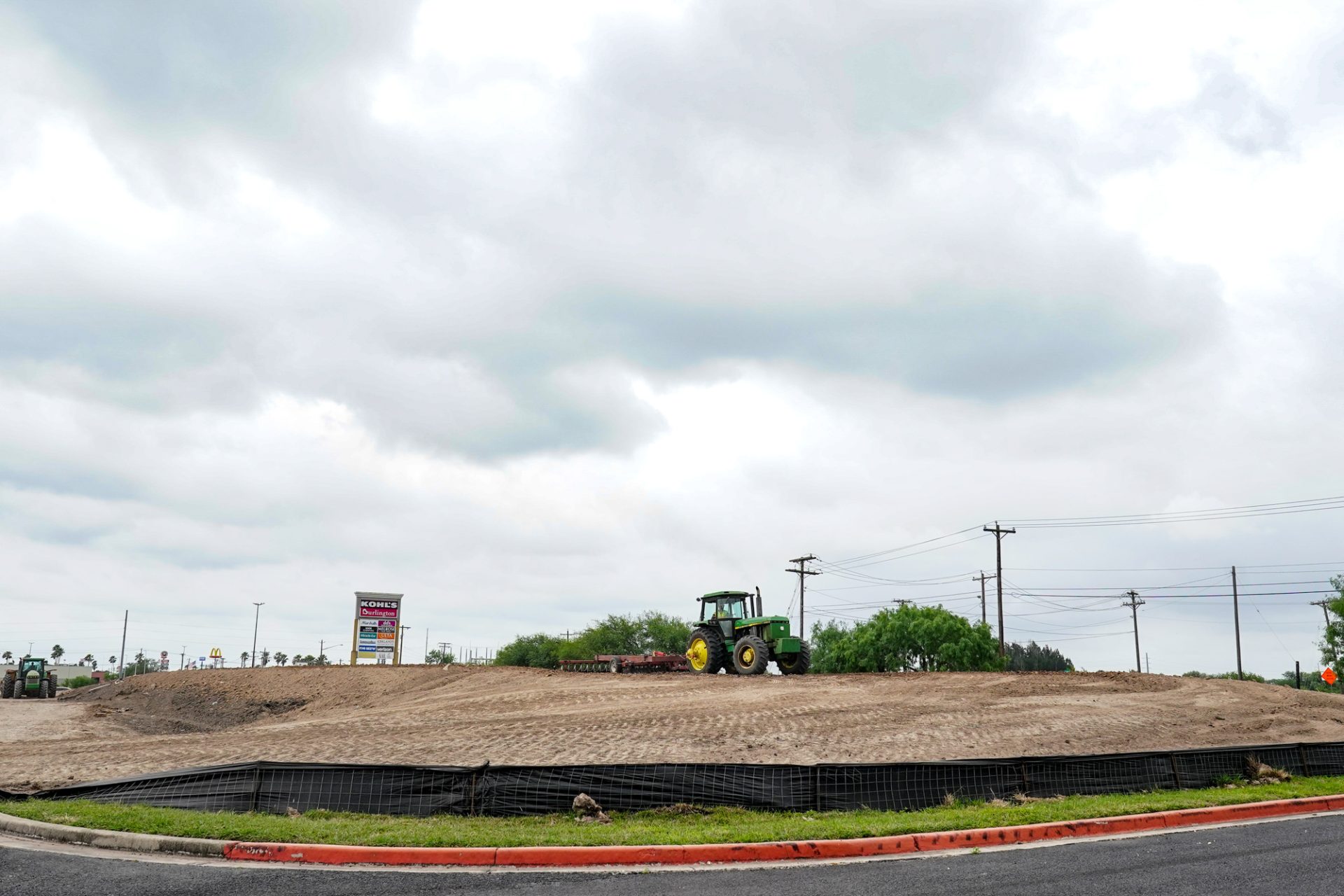|
Only have a minute? Listen instead
Getting your Trinity Audio player ready...
|
The more stable electricity availability in Harlingen and the Valley makes Harlingen and the Valley more attractive for corporations to look at. They have transmission lines and substations so they can draw electricity at lower rates.

HARLINGEN — The city stands at the Rio Grande Valley’s forefront of the “technology of the future” as more companies in the evolving energy production industry launch battery storage plants here, shoring up the region’s electric grid.
Earlier this week, city commissioners agreed to grant special permits to two companies planning to build plants storing crystallized lithium-ion batteries off Loop 499 and West Lincoln Avenue, which would charge more than 50,000 homes during power outages.
On the Valley’s map, Harlingen’s central location is helping to draw companies planning the region’s first cluster of plants, Commissioner Michael Mezmar said.
“Companies in this industry are recognizing Harlingen’s location in the Valley so they can store electricity and get to local grids when necessary,” he said during an interview. “We could get electricity in the grid for Harlingen, Willacy County, Brownsville and Hidalgo County.”
Drawing industry, generating revenue
The companies are planning energy production plants which will help draw industry to Harlingen and the Valley, Mezmar, a strong supporter of the technology, said.
“The more stable electricity availability in Harlingen and the Valley makes Harlingen and the Valley more attractive for corporations to look at,” he said. “They have transmission lines and substations so they can draw electricity at lower rates.”
The new industry will help pump revenue into the city’s budget, Mezmar said.
“They will generate lots of tax dollars,” he said. “On the construction side, there is a huge boost to our economy.”
On six acres of farmland off East Grimes Avenue and Loop 499, Fort Worth-based Black Mountain Energy Storage is planning a $100 million, 100-megawatt battery storage plant projected to generate $100 million within a 20-year period for Cameron County taxing entities, with as much as $6.2 million going into city coffers during its first 10 years of operation, officials said.
Companies in this industry are recognizing Harlingen’s location in the Valley so they can store electricity and get to local grids when necessary. We could get electricity in the grid for Harlingen, Willacy County, Brownsville and Hidalgo County.
Meanwhile, SMT Energy, a Boulder, Colo., company, is planning to build its second battery storage plant off on a 3.5-acre site off West Lincoln Avenue near Tucker Road, projected to generate $8.8 million in property tax revenue for Cameron County taxing entities, with as much as $2.2 million going into the city’s budget, Commissioner Daniel Lopez said.
As the plants’ batteries depreciate in value over time, the companies are planning to replace them with likely more efficient batteries, bolstering tax revenue, Mezmar said.
Biggest plant to power 50,000 homes
During a May 3 meeting, commissioners unanimously granted Black Mountain Energy Storage a special use permit to build a 100-megawatt unmanned battery storage plant capable of charging as many as 50,000 homes during power outages from a 6-acre site on farmland near Valley International Airport.
Amid discussion, Lopez requested companies opening battery storage plants within the city remove their batteries after closing their operations following lifespans of about 30 years.
“Upon the project ending, or the use of the facility, the company (would) remove the batteries,” Lopez told commissioners.

During last month’s public comment period, Eric Ziehe, president of the city’s Economic Development Corporation, stood in support of the project, arguing the plant would generate tax revenue while helping draw industry to the city.
Among the project’s opponents, Nick Consiglio, chairman of the city’s Planning and Zoning Commission, had argued the plant would stand like a sprawling eyesore along the city’s biggest trade corridor as visitors fly into town.
During a presentation, a company representative told commissioners Black Mountain Energy Storage plans to connect its plant to an AEP Texas substation across Loop 499.
To control any flooding, the site would include a retention pond, he said.
Meanwhile, the company plans to build a black 8-foot-high wall around its 6-acre project site, he said.
The company expects to launch construction in late 2024, with completion expected around mid 2025, he said.
Company to build its second plant
Amid no opposition, commissioners this week unanimously agreed to grant SMT Energy a special use permit to build its second battery storage plant off West Lincoln Avenue near Tucker Road next to an AEP substation.
Last month, Lopez called on commissioners to delay their decision amid concerns the new 10-megawatt plant would stand across the street from Academy Sports and Outdoor’s incoming store amid the city’s biggest shopping district.
After this week’s meeting, he said staff gave him information leading him to quash his concerns surrounding the proposed unmanned battery storage plant that would house 20-foot-long crystallized lithium-ion batteries.
“Talking to staff, I went with their recommendation,” Lopez said during an interview, referring to Planning Director Xavier Cervantes’ support of the project.

During a presentation last month, Assistant Planning Director Joel Olivo told commissioners the company’s proposing to build an 8-foot-high wall along part of the plant, with a landscape buffer fronting West Lincoln Avenue.
The plant, which would run across about 328 feet, would stand about 655 feet from the street, city document’s show.
Meanwhile, the company also plans to build a detention pond at the site, Olivo said.
First plant nearing completion
Last year, the city’s past commission, amid little opposition, granted the company a special use permit to build its first battery storage plant next to its new project site.
The unmanned plant will generate enough energy to power as many as 1,000 homes for up to an hour, officials said.
As part of the project, the company plans to install three 20-foot shipping containers storing crystallized lithium-ion batteries at the site.
During a meeting, David Spotts, the company’s co-founder, compared the project to an “electrical substation.”
The company plans to build a 6-foot-high opaque fence, along with landscaping, around the project site, city documents show.
The company’s first plant is expected to open in June.
PREVIOUS COVERAGE:
Harlingen officials continue delaying decision on battery energy storage site



